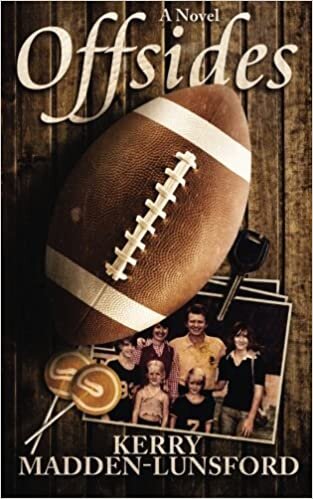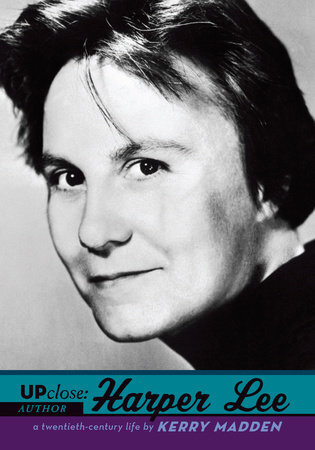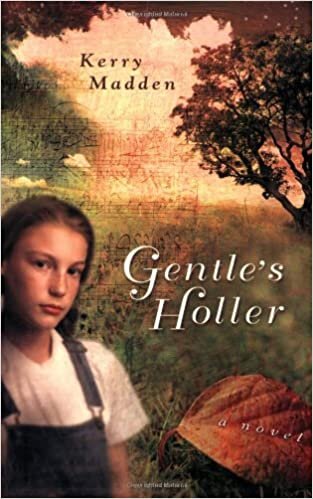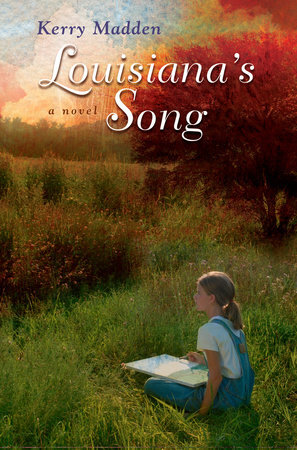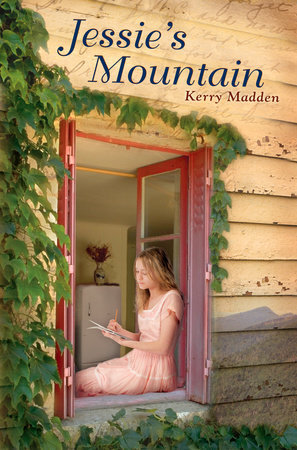By Amy Lutz, MCWC Operations Manager
We hope you will continue writing as protest and self-care. This month’s faculty spotlight interview is chock full of practical advice for a thriving writing practice from MCWC 2020 MG/YA workshop instructor Kerry Madden-Lunsford.
If you would like to come write with us online at the end of July, keep in mind that registration for MCWC 2020 closes on June 30. Seats are available in many of our workshops (including Kerry’s MG/YA workshop), as well as our one-day Publishing Bootcamp. Whether you’d like to take part in the full three-day experience with the workshop of your choice or just spend Sunday learning from our publishing professionals—or both—MCWC’s virtual conference is the perfect writing stay-cation.
Kerry Madden-Lunsford’s prolific writing career includes novels, nonfiction, and picture books. Her children’s novels include Gentle’s Holler, Louisiana Song, and Jessie’s Mountain. Her first novel, Offsides, was a New York Public Library Pick for the Teen Age. Her book Up Close Harper Lee made Booklist’s Ten Top Biographies for Youth. She has published essays and stories in the Los Angeles Times, Five Points, Shenandoah, the Washington Post, and more. Her newest picture book, Ernestine’s Milky Way, was published by Schwartz & Wade/Random House in 2019. She is the Director of Creative Writing at the University of Alabama at Birmingham and teaches in the MFA program at Antioch University.
You have experience teaching online for both UAB and Antioch. Can you share any tips for our participants for getting the most out of an online workshop?
I love teaching online both at UAB and at Antioch. I use TC Boyle’s words about writing workshops for all my teaching, whether online or in person: “Think of your colleagues in the workshop—and me, as well—as your trial audience. We will try our best to interpret your work while you, like a bacteriologist wrapped up in a lab coat, will analyze our analyses. We are all looking for great writing and we are all looking to see writers go in their own directions and develop their own voices. We will be a community. We will be your allies.”
I truly believe we become better writers when we listen to stories and learn to offer generous feedback. I am not talking about touchy-feely, “that was great!” feedback. I would encourage you to think about what you experienced listening to the story. What were the emotions and images running through your head? What questions do you have for the writer? A workshop is a place to bring work that is new and raw, and it can be terrifying to share work, so the goal is to be generous, thoughtful, and respectful readers and listeners.
In this interview with the UAB Reporter, you talk about the woman who inspired your latest children’s book, Ernestine’s Milky Way. How was your experience of honoring that individual through writing? What advice do you have for any writers translating an important relationship into their fiction?
I struggle with fear and hold myself back, thinking “What if they don’t like it? What if they hate it?” Ernestine first told me that story in 2009, but I didn’t give myself permission to write it until 2014, and then it was bought in 2016 and published in 2019. So, I absolutely do not recommend my on-the-fence/dilly-dallying way. I did write an essay about Ernestine that came out this year in the North Carolina Literary Review, which was so much fun to write because it was all the stuff that couldn’t be squeezed into a picture book.
I think if you write a person with love and joy, you will honor the relationship. I used to write with contempt and made my first writers’ group suffer until there was a mutiny—“No more Jake!” Jake was inspired by my late and infuriating brother-in-law, whom I did not write with love. Only when I began to write him with love did he find a home as Uncle Buddy in my Smoky Mountain/Maggie Valley Trilogy children’s novels.
Of course, you won’t please everyone, and you’ll go bananas trying, but do go easy on yourself and write with love, and if you can’t do that, write it anyway. You can always ask for forgiveness if you want to—much better than to ask for permission. Give yourself permission to tell the story that’s burning in your heart.
You have an extensive and varied list of publications. How do you manage your writing time and keep moving your projects forward? Do you tend to have multiple projects in the works all at once?
It’s really hard, I’ll just be honest. Some days, I have more bandwidth than others. I do have multiple projects going so that if one comes to a screeching halt for some reason, I can turn to another with fresh perspective. I might have a novel that’s giving me hell, so I’ll turn to a picture book or an essay that will occur to me, and I usually write essays in one sitting and follow up with lots of editing. I do have to be mindful of not falling into the sinkhole of revision. I use Submittable and that helps me keep track, too, although I do go through dry periods where I don’t submit for a while. I also keep a notebook by my bed, and I orbit around my writing spaces—desk, front porch, wingback, under the cherry tree, airplane seat (back in the day) and bed.
You mention your family in many of your interviews. Can you share with us more about the successful collaboration between your family life and your writing life? Do you have any encouragement for those struggling to balance both, especially right now while so many people may still be home with their families?
I remember a friend from my early days of being a young mother who would draw a chalk-line and her two-year-old knew not to cross that line when Mommy was writing. That friend wrote a hugely successful book, but I never managed the chalk-line strategy. Sometimes the kids were sitting on my lap when I was writing and I couldn’t escape feeling desperate—that I would never finish or write anything of meaning—and I wanted to unpeel them from my body. But the good times I remember are the times I let go and invited them into the story. I would let them dictate a story to me for fun. Or I encouraged them illustrate a story, and they sometimes did so under my desk while I finished something. Or I would look at them and see one kid’s braces or another kid’s tooth coming in and use it in my story.
When children do grow up though, it’s wonderful, especially if they find things they love. I loved collaborating with my daughter, Lucy, on Nothing Fancy About Kathryn & Charlie because she’s such a beautiful artist. Of course, there were days when she thought I hated her illustrations because I was quiet about them, when really I was being quiet because I was getting dog food (in our garage/her art studio) and didn’t want to disturb her. But I would collaborate with her again in a heartbeat. I would love to collaborate with all three kids in the future, but only if they suggest it or want it—and in the meantime, my sister and I are beginning to talk about collaborating on a graphic novel for teens called Coach about growing up as daughters of a college football coach. I wrote Offsides, but there are more stories to tell as sisters, being the oldest and youngest, in a football family.
In this interview with Cynthia Leitich Smith, you describe your long career and some of the things you wished you’d done differently looking back. Can you share a few tips for our participants hoping to make careers out of their writing?
I wrote this essay ten years ago called “Rock Bottom,” before I understood there were many trap doors under my “rock bottom” waiting for me.
Looking back at what I would have done differently, I would have avoided ghostwriting. I would advise writers to never accept a ghostwriting job unless you have a solid contract and you really want to do the work. But if you are trying to write your own stories, know that if you ghostwrite, your brain and heart will be eaten up with someone else’s story. So, if you don’t have to ghostwrite, don’t do it, or do it once and get out it out of your system, because you will learn a lot.
I would say this for any job—whether it’s teaching, ghostwriting, mothering—pay yourself first. There are days when I have a stack of stories to edit from students or beloved friends, but I do my own writing first. I didn’t used to do this, and sometimes, I still don’t, but whenever I work on my own stories first, I don’t feel resentful or destroyed by editing someone else’s.
Finally, don’t get your self-worth wrapped in your next book contract, because sometimes they will be few and far between. I recommend choosing friendship, meditation, sleep, a good diet, and kindness to yourself even on the darkest of days. And of course most of all: write.
To learn more about Kerry, visit her website at www.kerrymadden.com.
To sign up for Kerry’s MG/YA workshop at MCWC 2020, or any other workshop, visit mcwc.org. Registration closes June 30th.



